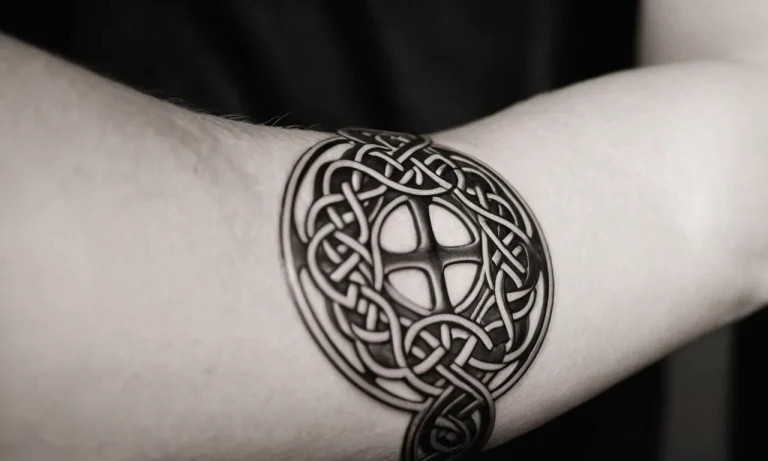Is Owl City’S Music Considered Christian?
As an electronic music project turned chart-topping act, Owl City captured attention with the smash hit “Fireflies” in 2009. With whimsical lyrics about faith, many fans have wondered if Owl City qualifies specifically as Christian music.
If you need a quick answer: While Owl City leader Adam Young grew up Christian and sometimes references biblical ideas, he has resisted labeling the band outright as Christian music, wanting to reach a wide audience with positive songs about life’s joys.
The themes ultimately transcend religious boundaries.
In this in-depth article, we’ll explore Owl City’s origins, analyze Adam Young’s personal beliefs, study the act’s lyrics and themes, examine their Christian music connections, and assess reactions from religious critics and fans.
Evaluating these factors comprehensively, we’ll gain insight into discerning whether Owl City fits neatly into the Christian music genre or reaches beyond it.
Adam Young’s Christian Background
Grew up attending Christian school and church in Minnesota
Adam Young, the mastermind behind Owl City, was raised in a Christian environment in Owatonna, Minnesota. He attended a Christian school and regularly went to church with his family. This upbringing played a significant role in shaping his values and worldview.
Religious upbringing influenced his values and worldview
Young’s Christian background had a profound impact on his music and lyrics. His faith influenced the themes of hope, love, and gratitude that are often present in his songs. The positive messages and uplifting melodies resonate with listeners from various backgrounds, including those who share his Christian beliefs.
Doesn’t deny his faith but avoids preaching through music
Although Young doesn’t explicitly label himself as a Christian artist, he doesn’t shy away from acknowledging his faith. He has mentioned in interviews that he doesn’t want to preach through his music but aims to provide a positive and uplifting experience for his listeners.
This approach allows his music to be enjoyed by people of different religious backgrounds, as it focuses on universal themes that resonate with a wide audience.
While Owl City’s music may not be considered overtly Christian, the influence of Young’s Christian background is evident in the values and messages portrayed in his songs. Whether you are a fan of his music or not, it’s interesting to explore the impact of an artist’s personal beliefs on their creative expression.
Lyrics Focus on Universal Wonders
Owl City’s music is known for its whimsical and imaginative lyrics that often revolve around universal wonders. While the lyrics occasionally touch on Christian imagery, they are not overtly religious. Instead, they aim to evoke a childlike sense of awe and wonder about everyday joys.
Playful lyrics touch on Christian imagery but not overtly
Some of Owl City’s songs contain playful references to Christian imagery, such as angels and heavenly themes. However, these references are not presented in a preachy or overtly religious manner. Instead, they are woven into the lyrics to add depth and meaning to the songs.
For example, in the hit song “Fireflies,” the lyrics mention “a thousand hugs from 10,000 lightning bugs,” which can be interpreted as a metaphor for the beauty and wonder of God’s creation.
Aim more for childlike sense of awe about everyday joys
Owl City’s lyrics primarily aim to create a sense of childlike wonder and awe about the world around us. The songs often explore themes of innocence, imagination, and the appreciation of simple joys. They celebrate the beauty of nature, the magic of love, and the joy of being alive.
The intention is to transport listeners back to a time when the world was full of endless possibilities and everyday wonders were sources of great excitement.
Avoids preaching in favor of nostalgia and positivity
Unlike some explicitly Christian artists, Owl City avoids preaching or pushing a specific religious agenda in their music. Instead, they focus on nostalgia and positivity. Their lyrics often evoke a sense of nostalgia for childhood and simpler times, reminding listeners of the beauty and optimism that can be found in everyday life.
Through their music, Owl City encourages listeners to embrace positivity, find joy in the small things, and appreciate the wonders of the world around them.
Electronic Style Bears Little Religious Resemblance
Owl City’s music, known for its electronic style, bears little resemblance to traditional worship music typically associated with Christian music. The synthesized melodies and vocal effects used in Owl City’s songs create a distinctive sound that sets it apart from more traditional Christian music genres.
Synthesized melodies and vocal effects unlike traditional worship music
Owl City’s music is characterized by its use of synthesized melodies and vocal effects, which give it a unique and modern sound. This electronic style is not commonly found in traditional worship music, which tends to rely more on acoustic instruments and choirs.
The upbeat and catchy nature of Owl City’s songs also diverges from the typically reflective and contemplative tone of worship music.
Does occasional faith-based side projects with clearer Christian messaging
While Owl City’s mainstream music may not overtly reference Christian themes, the artist, Adam Young, has occasionally pursued faith-based side projects that have clearer Christian messaging. One notable example is his collaboration with Christian artist Britt Nicole on the song “You’re Not Alone.”
This song, with its encouraging lyrics and positive message, resonated with the Christian music community.
Mainstream collaborations distance Owl City from just Christian market
Owl City’s collaborations with mainstream artists, such as Carly Rae Jepsen on the hit song “Good Time,” have helped to distance the artist from being solely associated with the Christian market. These collaborations have allowed Owl City’s music to reach a wider audience and gain popularity beyond the Christian music scene.
While there may be elements of faith in Owl City’s music, it is not solely focused on catering to the Christian market.
Divided Opinion Among Christian Audiences
Some Christians embrace the innocent wonder in the lyrics
When it comes to Owl City’s music, there is a divided opinion within Christian audiences. Some Christians wholeheartedly embrace the innocent wonder and uplifting messages found in Adam Young’s lyrics.
Songs like “Fireflies” and “Good Time” have resonated with listeners, offering a sense of hope and joy. These individuals appreciate the positive and uplifting themes present in Owl City’s music, seeing it as a source of inspiration and encouragement in their faith journeys.
Others criticize perceived spiritual ambiguity or shallowness
On the other hand, there are Christians who have raised concerns about Owl City’s music, citing perceived spiritual ambiguity or shallowness. They argue that the lyrics often lack explicit Christian references or a clear Gospel message, leading to a sense of confusion or ambiguity.
Some critics argue that the music fails to address deeper theological issues or challenges, focusing instead on more superficial themes. However, it is important to note that music can often be subjective, and individuals may interpret lyrics differently based on their own perspectives and experiences.
Seen as Christian-friendly but not strictly Christian music
Conclusion
With founding artist Adam Young’s faith shaping Owl City’s worldview, and occasional spiritual metaphors in lyrics, the band contains elements of Christian music without always being embraced by that genre.
By focusing more on childlike wonder than religious doctrine, Owl City’s whimsical synth-pop ultimately appeals to music fans across belief systems who share a sense of joy about the mysteries of the universe.
The openness suggests faith can inspire art to be universally uplifting when not constrained by labels.








